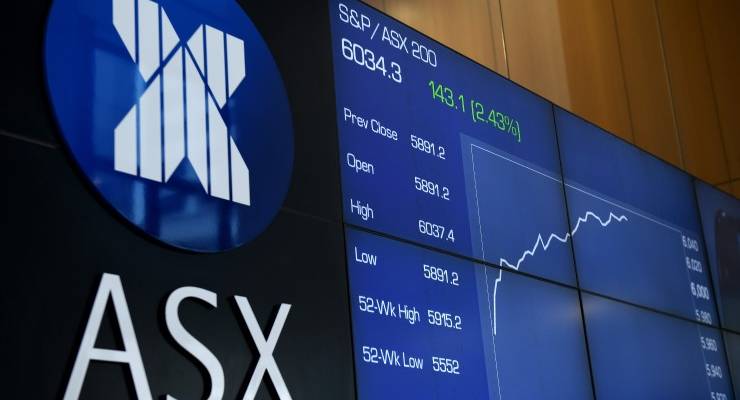
Another financial year has finished — and half of 2019 — and there’s a growing disparity between the mentality of sharemarkets, the position of the government and what’s happening in the real economy.
The June half-year saw a 17.2% rise in the ASX 200, the best first six months since 1992, when the economy was starting to pull out of Paul Keating’s recession. That’s good for everyone’s superannuation accounts, but don’t expect it to last. Ahead lies a reversion to the mean as the slowing economy and weakening earnings take their toll and investors come to fully understand why the Reserve Bank is cutting interest rates this year for the first time since 2016.
Yields on Australian 10 year bonds (a key indicator of future prospects) have hit a series of record lows in 2018-19 as it became more obvious the RBA would be forced to cut rates. The yield on 10 year bonds ended the financial year at 1.32%, close to the all time low of 1.27% reached earlier in the week. That sort of level is only sustainable in a weak economy and with an expansive monetary policy, with the Reserve Bank tipped to cut rates further tomorrow — again mocking Scott Morrison’s “strong economy” sloganeering.
Morrison does have the benefit of additional revenue from higher iron ore prices. The budget is expected to reach surplus — or go as near as makes no difference — for the financial year just concluded due to an 80% surge in iron ore prices over the year, from around US$65 a tonne in June 2018 to just over US$118 last Friday. That gives the government the last laugh on all the critics who mocked the Budget night claims of “back in black”.
Given that Mathias Cormann has been an effective guardian on spending and made the government keep its discipline even in the face of a desperate reelection strategy, you can’t begrudge the government the good fortune of benign commodity markets. But that will not be repeated in the 2019-20 financial year, and while prices will remain around current levels for a few months longer, it’s a one-off hit (shareholders in Fortescue Metals shouldn’t expect a repeat of the 105% surge of their company’s share price in 2018-19 either).
The government will also face increasing pressure to respond to calls for fiscal stimulus beyond the relatively paltry first stage of its tax cut package — which it will be reluctant to do given the fragility of the return to surplus. The second half of 2019 will be about how quickly employers respond to a weakening economy, and thus whether unemployment rises and wage growth starts slumping again, sending household incomes and consumer sentiment down further.
A bullish share market and a government triumphant about its return to surplus isn’t going to mean much to households facing rising uncertainty around jobs and a deepening of the government’s preferred policy of wage stagnation.









The surplus is also on the back of the govt having not spent all their NDIS budget, which I suppose was always going to happen with the miserable mentality of this mob. I would like you to explain your repeated line that it is this govt’s preferred policy of wage stagnation: I know why l think that is the case but it may be different to your version.
BK has done so numerous times – Cormann explicitly said so in an interview.
this government has completely abandoned economic and fiscal commonsense for ideologically driven neo conservative stupidity that will drive australia`s economy into the ground, unemployment will quickly start to rise and this has a domino effect, while new zealand is taking thousands out of poverty morrisons government is doing the exact opposite, they are either economically illiterate or corrupted by vested big business interests to the detriment of the nation.
Good to see that BK’s bromance with the Kormanator is undiminished despite his now being viewed much less benignly given his duplicitous role in the defenestration of Talcum.
However it is ludicrous to claim that his being “an effective guardian on spending” has any effect on the dodgy claims of a Budget back in black B/S.
If, a huge IF, that occurs (and WHY it should be considered a “good thing” is another matter) it will be as a result of export prices for specific commodities affected by events over which it has no control.
Mr Shouty McSmug as Mr Micawber, “hoping something will turn up”?